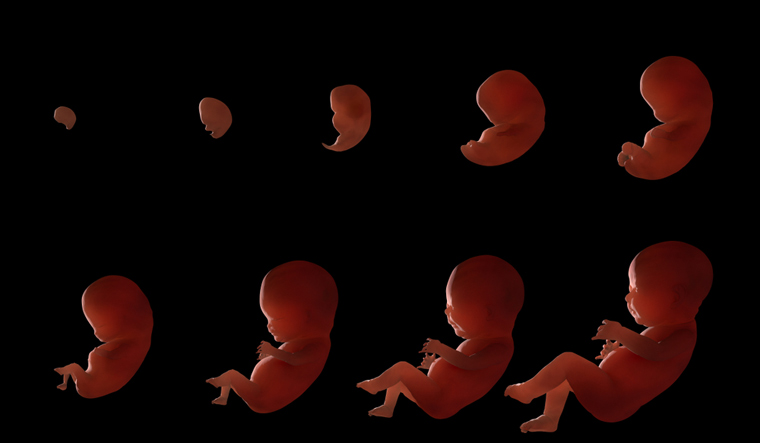Woman care!!
One stop for
all your lady problems…
Talk To Us

Getting good care before, during, and after your pregnancy is very important. It can help your baby grow and develop and keep you both healthy. It is the best way to be sure your little one gets a head start on a healthy life. Good prenatal care includes good nutrition and health habits before and during pregnancy.
Standing for long periods during pregnancy may curb the growth of the developing fetus, suggests research published online in Occupational and Environmental Medicine. Previous research has indicated that long working hours may increase the risk of birth defects, premature birth, stillbirth and low birth-weight
Heavy lifting, standing for long periods of time, or bending a lot during pregnancy could increase your chances of miscarriage, preterm birth, or injury during pregnancy. High physical demands at work have also been associated with menstrual disorders, which might reflect reduced fertility.
To maintain good posture, keep your back straight and avoid bending or lifting anything too heavy. Leaning forward too often during pregnancy will not affect your birth outcomes. And there is no evidence to suggest that bending over or leaning forward during pregnancy can cause miscarriage.

Limiting the number of children in a family means more resources for each child and more time for the parents to dedicate to each child. Family planning can also help couples in a sexual relationship not to be worried about the woman getting pregnant.

Gynecologists give reproductive and sexual health services that include pelvic exams, Pap tests, cancer screenings, and testing and treatment for vaginal infections. They diagnose and treat reproductive system disorders such as endometriosis, infertility, ovarian cysts, and pelvic pain.

Clomiphene citrate. Clomiphene citrate is taken by mouth and stimulates ovulation by causing the pituitary gland to release more FSH and LH , which stimulate the growth of an ovarian follicle containing an egg..

If your doctor has diagnosed you with a vaginal yeast infections before and you're having the same symptoms, you can try an over-the-counter yeast infection medicine. But if you're not sure, see your doctor or go to a Planned Parenthood health center.

Your health care provider can use ultrasound to determine whether your baby is growing at a normal rate. Ultrasound can be used to monitor your baby's movement, breathing and heart rate. Study the placenta and amniotic fluid levels. The placenta provides your baby with vital nutrients and oxygen-rich blood.

Pregnant women under 17 or over 35 are considered high-risk pregnancies. Being
pregnant with multiple babies. Having a history of complicated pregnancies, such
as preterm labor, C-section, pregnancy loss or having a child with a birth
defect. A family history of genetic conditions.
Excessive nausea and vomiting:
It's normal to have some nausea and vomiting during your
first trimester. Most pregnant women go through this. But if it's severe or makes you
dehydrated, that's something to heed. If you can't keep any water or fluids down for more
than 12 hours, call your doctor.

Multiple pregnancy, usually referred to as multiple gestation, is one in which more than one fetus develops simultaneously in the mother's womb.

An obstetrician is a doctor with specialist qualifications in delivering babies and providing medical care to women during pregnancy (antenatal care) and after the birth (postnatal care). Obstetricians have the skills to manage complex or high-risk pregnancies and births, and can perform interventions and caesareans

Will I be able to feel my baby move at two months pregnant? The first tiny movements you feel, known as quickening, usually aren't perceptible until week 18 or even later. Hang in there! You'll feel those little kicks before you know it!.
An extremely passionate and highly experienced obstetrician and gynaecologist with over 6000 deliveries to her credit in her career of over 26 years. In her tenure she has handled several high-risk pregnancies including covid pregnancies. Her motto for life is to excel in patient care with the advances in recent medicine.
WEEK 1-4
WEEK 4-9
WEEK 9-13
WEEK 13-18
WEEK 18-22
WEEK 22-27
WEEK 27-31
WEEK 31-36
WEEK 36-40
One of the best Obstetrician and Gynaecologist in Bangalore with an experience of over 26 years. She is specialized in high-risk pregnancies like diabetes, hypertension, thyroid disorders and gynaecological problems. Has extreme interest in laparoscopic surgeries. Doctor is very approachable and dedicated to her work. She has gained experience by working in all cadres of hospitals and has been part of several medical camps for women.
Antenatal care , gynaec problems ,laparoscopic surgery, high-risk pregnancy care ,pre and post-delivery Care, Postnatal care, D&C (Dilation and Curettage) ,Normal Vaginal Delivery (NVD) , Maternal Care/ Checkup , Fetal Medicine ,Caesarean Section (C Section) ,family planning and contraceptive services, Women Counseling ,PCOD/PCOS Treatment, Pregnancy with PCOD ,Irregular periods, Heavy Periods ,Vaginal Infection Treatment, Painful Periods, Pre Menstrual Syndrome, menopause advice ,Polycystic Ovary Syndrome in Adolescence, Diseases in Pregnancy, Menstrual Disorders in Adolescent Girls.
Obstetrician and Gynaecologist
MBBS - Bangalore Medical College and Research Institute, Bangalore, 1990
DGO - Jagadguru
Jayadeva Murugarajendra Medical College (JJMMC), 1995
1995 - 1996 Junior Resident at Gunasheela Maternity and Surgical Center
1996 - 1997 Junior Resident at Manipal Northside Hospital
1997 - 2016 Consultant at Kaushik Hospital, Shekhar Hospital, Sevakshetra Hospital,
Krishna Sevashram Hospital, RR Hospital & Trauma Centre
2011 - 2013 Senior Consultant OBG at Lady Hospital
2013 - 2016 Senior Consultant OBG at Apollo Cradle Hospital, Jayanagar
2016 - December 2024 - Senior Consultant OBG at Cloudnine Hospital, Jayanagar
Present : Jan 2025 - Continue - Senior Consultant OBG at Apollo Cradle & Children's Hospital - Jayanagar , Bangalore
Bangalore Society of Obstetrics & Gynaecology (BSOG) Federation of Obstetric and Gynaecological Societies of India (FOGSI)
29953 Karnataka Medical Council, 1990

Abnormal uterine bleeding (AUB) is bleeding from the uterus that is longer than usual or that occurs at an irregular time. Bleeding may be heavier or lighter than usual and occur often or randomly.

Endometrial hyperplasia is a condition of the female reproductive system. The lining of the uterus (endometrium) becomes unusually thick because of having too many cells (hyperplasia). It's not cancer, but in certain women, it raises the risk of developing endometrial cancer, a type of uterine cancer.

Since most people who have HIV appear healthy, a blood test for the virus is necessary to see who has the infection. People who have a positive blood test for HIV are called HIV-positive. Ask your doctor how to obtain confidential testing for HIV. Your doctor can help you understand what the test results mean.

Urinary incontinence is leaking of urine that you can't control.

Adenomyosis is a condition where the cells that usually grow into the uterine lining instead grow outward into the uterus muscle. During a woman's menstrual cycle, these “trapped” cells become stimulated, which can make menstrual cramps and bleeding more severe than usual.

problems Cervical dysplasia is a precancerous condition in which abnormal
changes occur in the cells of the cervix. If left untreated, cervical dysplasia
can cause cervical cancer.

During a pelvic exam, your doctor manually feels (palpates) areas in your pelvis for abnormalities, such as cysts on your reproductive organs or scars behind your uterus. Often, it's not possible to feel small areas of endometriosis unless they've caused a cyst to form.

Uterine fibroids are benign, or noncancerous, fibrous growths that form in the uterus. They're very common. They can grow on the outside of the uterus (called subserosal fibroids), inside the muscle of the uterus (called intramural fibroids), or into the uterine cavity (called submucosal fibroids).

Genital warts must be treated by your doctor. Do not try to treat the warts yourself. The warts can be removed, but the viral infection itself can't be cured. The virus lives inside your skin.

If your fallopian tubes are blocked by small amounts of scar tissue or adhesions, your doctor can use laparoscopic surgery to remove the blockage and open the tubes. If your fallopian tubes are blocked by large amounts of scar tissue or adhesions, treatment to remove the blockages may not be possible.

Irregular periods,according to doctors Sudden cycle changes — whether that's spotting between periods, bleeding for more than a week, a period that suddenly stops, or extremely painful/unusually heavy periods — should be discussed with your doctor. You're experiencing an underlying medical issue or lifestyle trigger.

Abnormal discharge may be yellow or green, chunky in consistency, or foul smelling. Yeast or a bacterial infection usually causes abnormal discharge. If you notice any discharge that looks unusual or smells foul, see your doctor for diagnosis and treatment.

There's no single test for it, but a physical exam, ultrasound, and blood tests can help diagnose PCOS. You need to meet 2 of these 3 "official" criteria to be diagnosed: Irregular, heavy, or missed periods due to missed ovulation—the release of an egg from your ovaries.

To help control the symptoms of menopause, some women can take hormones,
called menopausal hormone therapy (MHT). MHT used to be called hormone
replacement therapy or HR



Pre-conception counseling (also called pre-conceptual counseling) is a meeting with a health-care professional by a woman before attempting to become pregnant.

Dilation and curettage (D&C) is a procedure to remove tissue from inside your uterus. Doctors perform dilation and curettage to diagnose and treat certain uterine conditions — such as heavy bleeding — or to clear the uterine lining after a miscarriage or abortion.

and Medical abortion is a procedure that uses medication to end a pregnancy. A medical abortion doesn't require surgery or anesthesia and can be started either in a medical office or at home with follow-up visits to your doctor. It's safer and most effective during the first trimester of pregnancy.

Cosmetic Gynecology, or Female Cosmetic Genital Surgery (fcgs), is the fastest growing subspecialty for women. It includes procedures to enhance the aesthetic appearance of the vulva/vaginal region; and vaginal repairs to enhance or restore sexual function that are degraded due to childbirth or aging.

Transabdominal early pregnancy scans are performed at 7-11 weeks of pregnancy
and are done over the abdomen. Commonly these are known as ultrasound scans and
is carried out by one of the highly qualified professionals (sonographer) in the
hospital.

The food you eat during the first trimester of your pregnancy must be really healthy. Include fresh leafy vegetables, sweet potatoes, fish and seafood, dairy items like yoghurt, chickpeas, lentils, eggs etc. in your diet and stay away from processed food items. Also, keep yourself hydrated all through the day.

Regular health checks can identify any early signs of health issues. When you have a health check, your doctor will talk with you about your medical history, your family's history of disease and your lifestyle, including your diet, weight, physical activity, alcohol use and whether you smoke.

laparoscopic surgery is required to keep the functioning of the bladder, intestines, and the sacral promontory intact. It can address the prolapse of the vaginal walls, cervix, or uterus in women of advanced age..

Gestational Diabetes – This condition can increase the risk of complications in pregnancy. However, you can have a healthy pregnancy and birth by following a diet and treatment plan prescribed by a doctor. High blood pressure – During pregnancy, some changes to blood pressure medication may be recommended.

Pregnancy test as early as 11–14 days after ovulation. To perform a blood pregnancy test, the doctor draws blood from a vein in your arm. This blood is sent to a laboratory for testing. The results of most blood pregnancy tests take at least a couple of days.

Regular prenatal care for women with high-risk pregnancies. Helps manage the mother's existing health problems, such as diabetes and high blood pressure. Cares for women who develop complications during pregnancy or childbirth.

Doctors perform cerclage to prevent late (second trimester) miscarriages and preterm (early) delivery. Women may be at risk for these complications because of cervical incompetence (when your cervix opens too soon during pregnancy). will perform cervical cerclage, also called cervical stitch, in her clinic

A small piece of your placenta by putting a needle through your belly or a small tube up your vagina. They test the sample for Down syndrome and other genetic conditions. Only some high-risk women will need this test, usually if a screening found a risk of a birth defect.

A multiple pregnancy increases the risk of complications. More frequent visits may help your doctor find complications early enough to implement effective treatment or management. Your nutritional status and weight should also be monitored more closely with a multiple pregnancy.

Genetic counselling is a specialized branch of medicine aimed at helping individuals, couples and families understand and adapt to the medical, psychological, familial and reproductive implications of the genetic contribution to specific health conditions.

The term bad obstetric history (BOH) is loosely used to signify that a woman has previously had problems in previous pregnancies. This may include miscarriage, stillbirth or any other adverse and unwanted conditions.

Symptoms of a placental disorder can include vaginal bleeding, abdominal pain, headaches, and preterm labor with back pain or uterine contractions. Most patients, however, do not experience any symptoms outside of normal pregnancy symptoms. Placental disorders are typically diagnosed by prenatal ultrasound.

It occurs when women who are pregnant have a sudden increase in blood pressure along with signs of organ damage (most often to the kidneys or liver, but sometimes the lungs or other organs).

Limiting the number of children in a family means more resources for each child and more time for the parents to dedicate to each child. Family planning can also help couples in a sexual relationship not to be worried about the woman getting pregnant.
Dr. Meenakshi is talking about the importance of Prenatal Yoga . For prenatal yoga please contact Rajesh 9844909659



Your feedback is highly appreciated.
Thanks & Regards
Dr. Meenakshi R Kamath
